Today, approximately 250 million roses will be sold and gifted worldwide to mark Valentine’s Day. But what are the ethical and environmental implications of passing on these symbols of affection? Just like food or fibres, roses are an agricultural commodity, so there are multiple factors to consider beyond the colours and smells of what have become a symbol of one the most profitable global festivities.
The main consumers of roses are Western countries in Europe and North America. And although the Netherlands has historically been a major grower and supplier for the European continent, in recent years the production has shifted to India, South America and East Africa, where climates are more stable, and labour costs are lower. According to a 2016 documentary made by the Dutch broadcaster, Zembla, a quarter of the world’s roses were harvested by one farm in Ethiopia. Operated by a Dutch company, Afriflora Sher, the documentary reported that employees were paid wages as low as one euro a day.
Photojournalist Adriano Marzi has been living in Ethiopia since 2012. Having completed a masters in environmental economics and development, Marzi decided to investigate Afriflora Sher’s 40 vast greenhouses, located near Ziway lake, 160km south of Addis Ababa. He’s been developing his ongoing project, Flower Power, since 2013, the same year he gained access to the greenhouses for a first and only time, by claiming he was “interested in documenting how the company was contributing to the development of Ziway”. The working conditions were far from ideal, he claims.
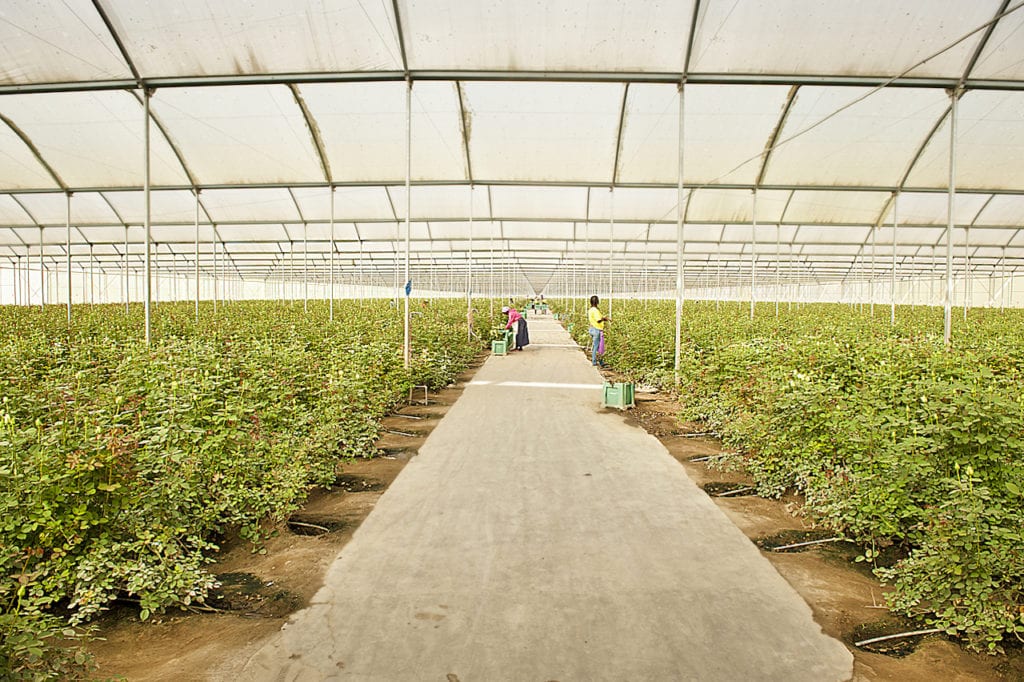
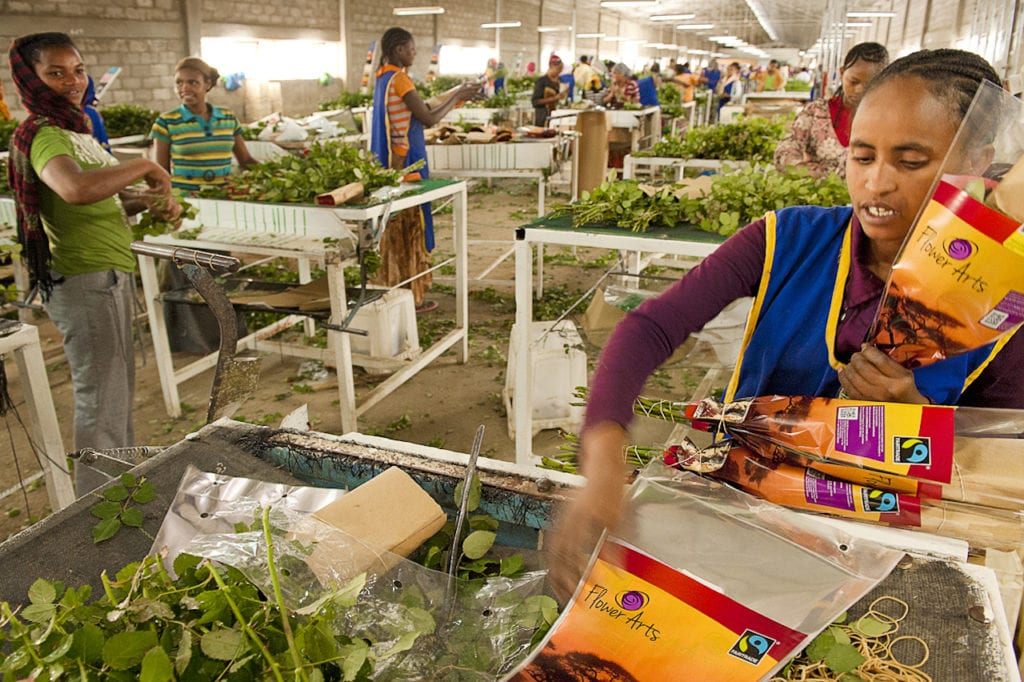
Afriflora Sher currently hires 13,000 employees, approximately 70 percent of which are women. According to Zembla’s documentary, as of 2016, these employees are paid an average salary of 30 euros a month. In response to the documentary, Afriflora Sher published an article denying all allegations, stating that their average wage for employees in 2014-15 was 50 percent higher than Zembla’s claims, at 43 euros a month. Yet this salary is still below the threshold of the World Bank’s poverty line, meaning it is not enough to provide an adequate lifestyle. According to Marzi, this is particularly problematic in Ziway, where due to the global demand for roses and workers to harvest them, rent and inflation is on the rise.
Still, the roses that are harvested in these greenhouses, before being shipped to the Netherlands and auctioned in flower markets with a daily turnover of over 10 million euros, are being sold with a Fairtrade certificate: a symbol we associate with fair wages. “Fairtrade was created with the belief that promoting direct cooperation with small producers could be the key to improving living conditions of the world’s poorest people,” says Marzi. “Is it ‘fair’ that these roses, produced by the largest rose company in the world that takes advantage of cheap manpower?”
It all comes down to Ethiopia’s lack of legislated minimum wage. Up until 2017, in order to obtain a Fairtrade certificate, employees were required to pay their workers at least the national minimum wage, but in Ethiopia, where this doesn’t exist, companies were able to decide what they paid their employees. Recognising this as a major problem, in 2017 Fairtrade introduced a new requirement. Now, companies must implement a plan to work towards applying wages that correspond with the World Bank’s global poverty line.
However, according to Caroline Wildeman, coordinator of Women@Work (a campaign led by Dutch NGO, Hivos, which aims to improve conditions for women working in global horticulture supply chains), due to the lack of a deadline on this regulation, no flowers currently on the Dutch market have been produced at this wage, let alone a living wage.
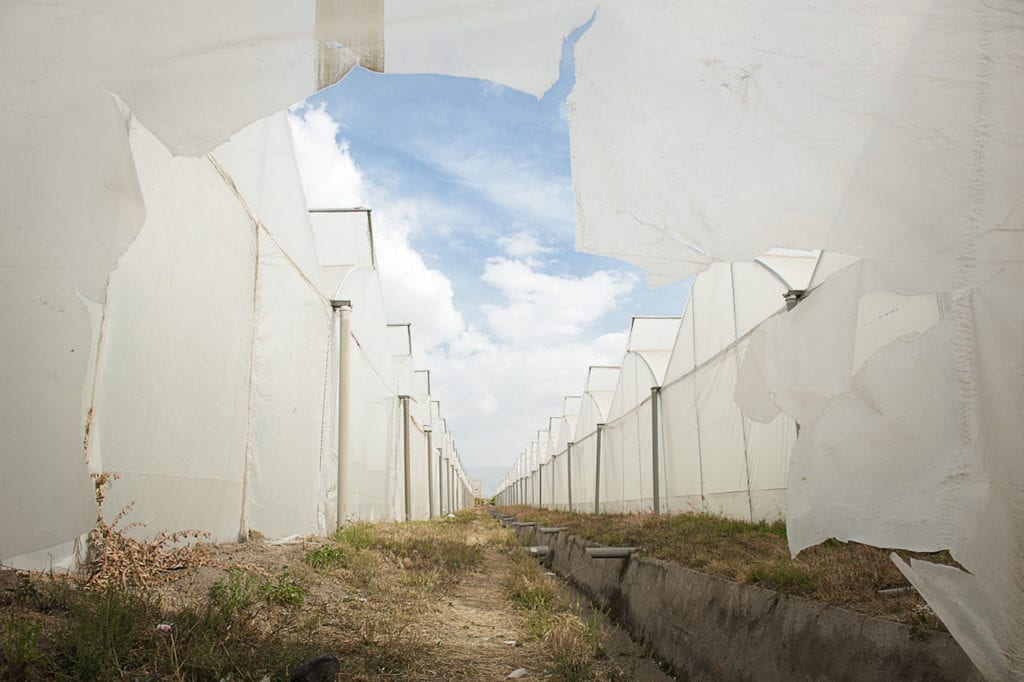
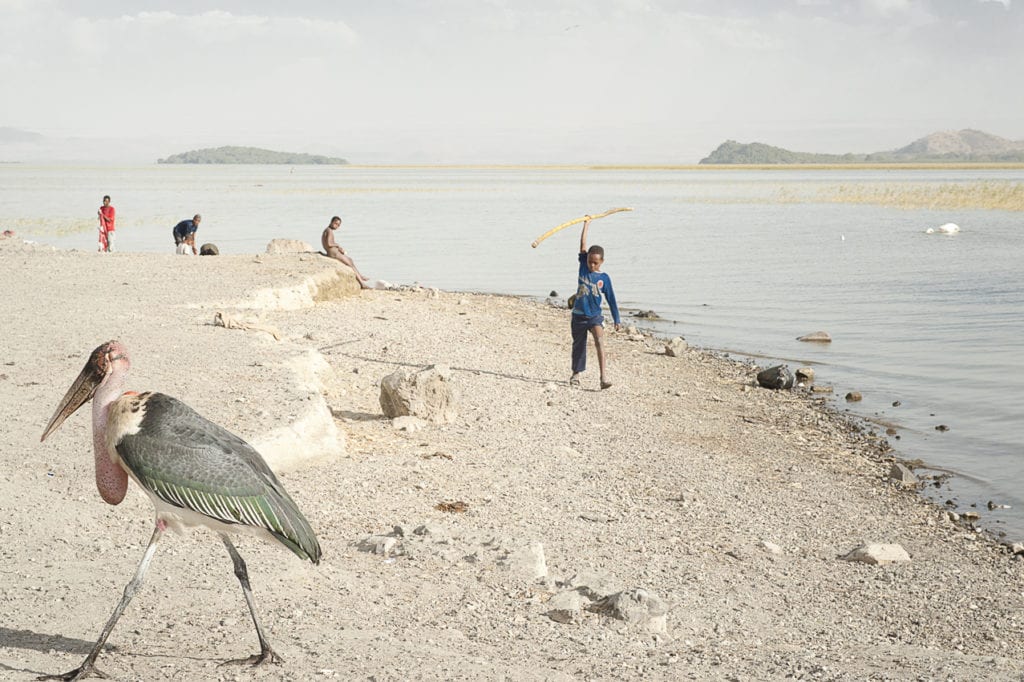
Still, movements towards positive change are being made. In July 2019, the Dutch floriculture sector (including Afriflora Sher) signed a new set of guidelines, formed together with the government, the trade union, and Hivos. The multi-stakeholder agreement requires the Dutch sector to work towards a more sustainable supply chain, and by April 2020, all flower exporting farms have agreed to pay wages that correspond to the Ethiopian living wage of 1.75 euros a day.
“They have put their signature on it, but there has been a lot of resistance because currently, no one pays that much,” Wildeman points out. “You cannot say that it’s all negative, but in general, the wages are still low, and other conditions, in regards to protection from harmful chemicals and health and safety issues, still need to be addressed”.
These are all issues that are addressed in Marzi’s project, Flower Power. In addition to photographing inside Afriflora Sher’s greenhouses, the photographer visited the Hortiflora Expo, an annual event where national and international suppliers gather to meet Ethiopian growers in the country’s capital. He also travelled to the Netherlands, documenting the world’s largest flower auction in Aalsmeer, where they distribute almost 50 percent of the world’s flowers, of which approximately 60 to 70 percent come from Eastern regions of Africa such as Ethiopia.
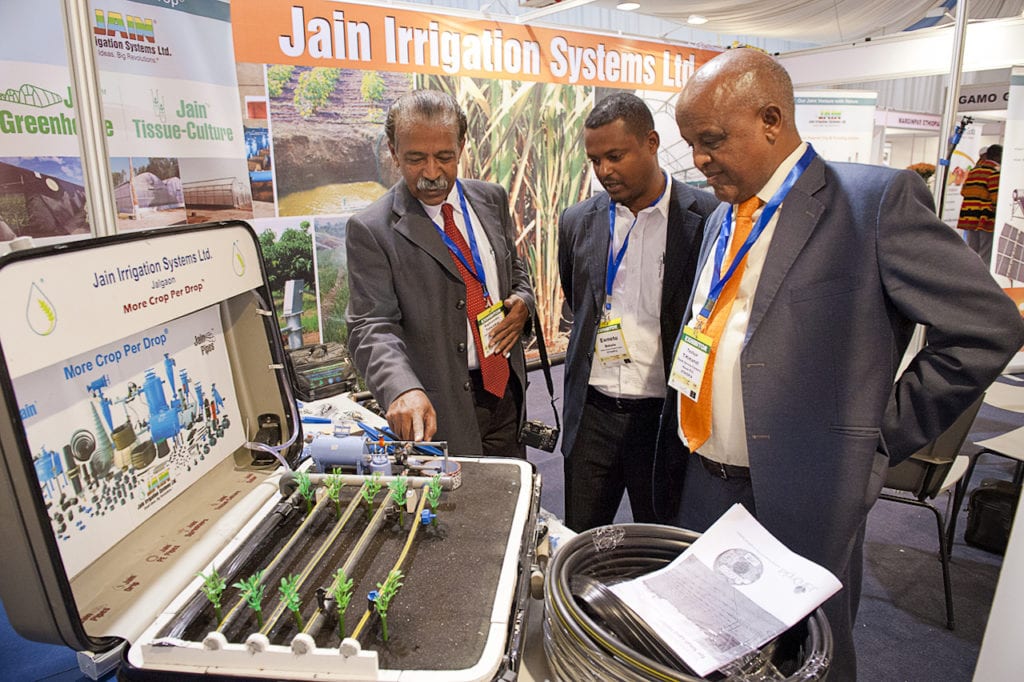
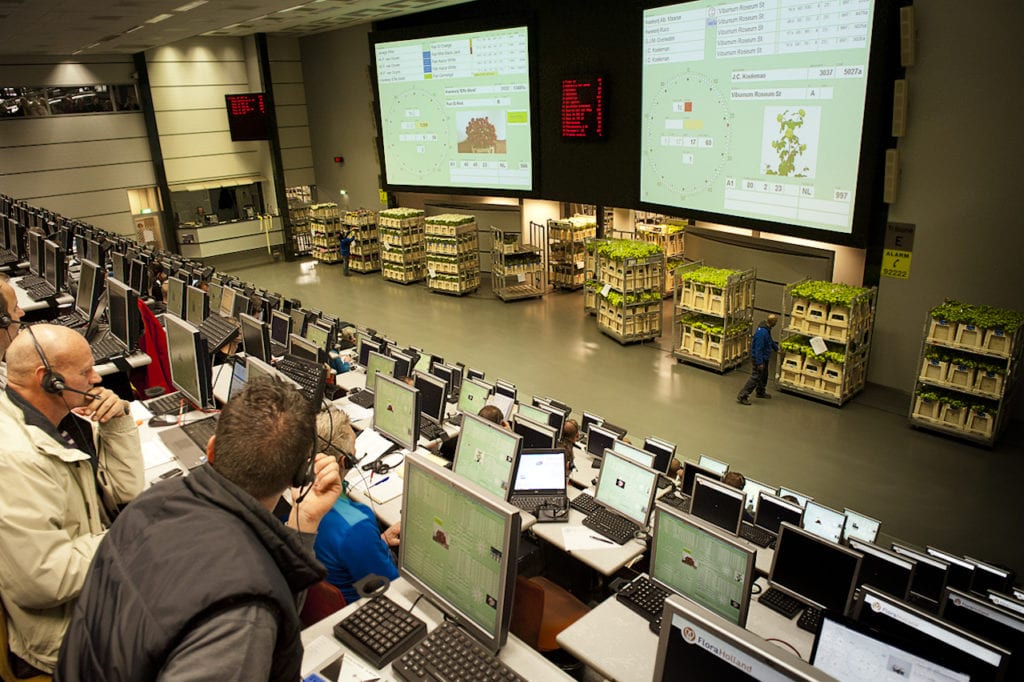
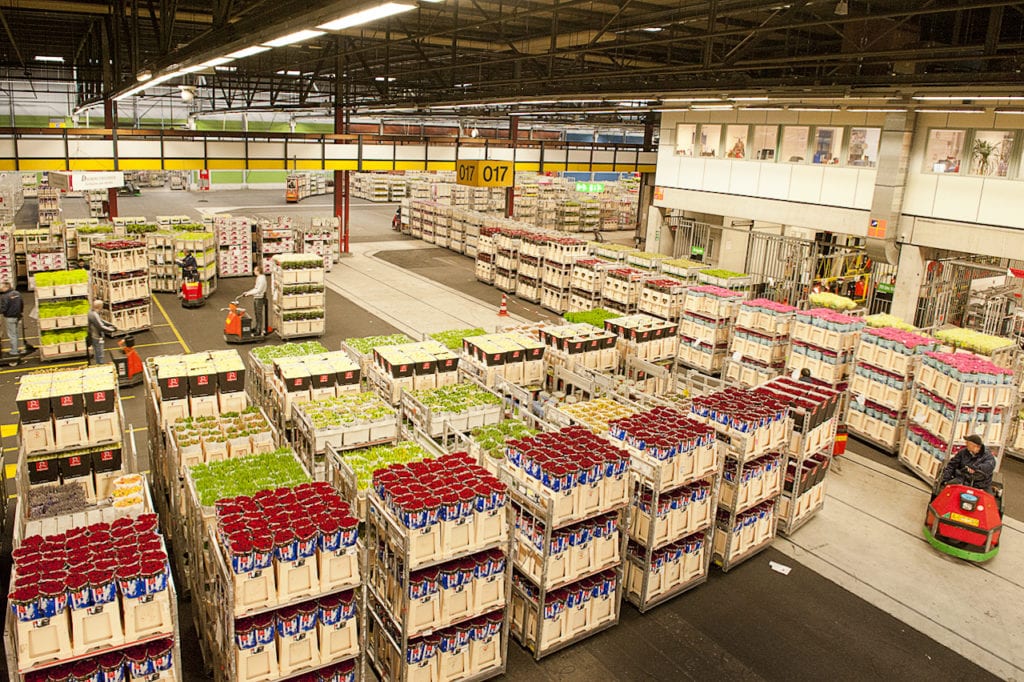
For many reasons, the flower trade is yet to see the same positive changes that have occured in the coffee, cacao, and banana trade. This could be attributed to the daily necessity of the latter products — compared with the luxury sentiments associated with floristry — but also the history of the industry. Floriculture began in the late 1800s in the UK, and from the 1970s onwards the Netherlands grew to become the global center of both production and trade. It is only during this millenium that the production focus has shifted, which could explain the lack of public awareness.
So today, before you buy your dozen roses to gift to loved ones, both Wilderman and Marzi encourage consumers to question the supply chain, put pressure on retailers, and more than anything, spread awareness.
adrianomarzi.com
womenatworkcampaign.org
—
